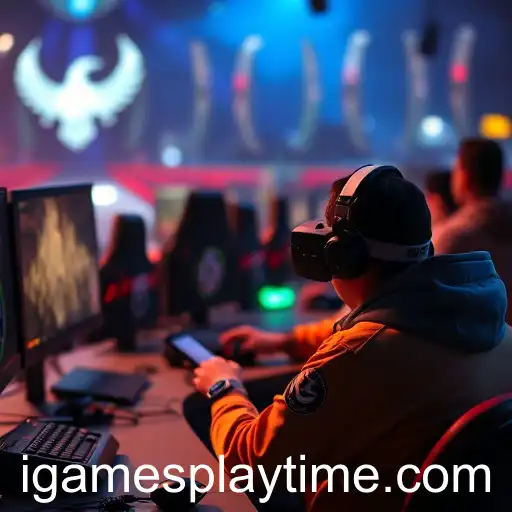
An insightful exploration of how gaming playtime is being influenced by modern technological advancements and societal shifts.
The landscape of gaming has seen remarkable transitions as we step into the middle of the decade. With the rise of virtual reality (VR) and an increasing focus on Esports, gaming playtime has become a point of interest and analysis for gamers and industry stakeholders alike.
In recent years, games playtime has undergone dynamic shifts. According to current data, average playtime tells us not only about evolving gamer preferences but also about the impact of technological innovation. VR has introduced a new dimension that increases playtime as gamers immerse themselves in virtually crafted worlds more intensely and for longer durations. Likewise, streaming platforms have also contributed to extended playtimes, as both players and viewers spend more hours engaged with content.
These changes are largely fueled by technological advancements which have made high-speed internet and powerful gaming hardware more accessible. This accessibility allows a broader audience from diverse demographic backgrounds to participate in extended gaming sessions. Furthermore, the growing awareness around mental health has ignited discussions about mindful gaming, encouraging balanced playtime to avoid potential pitfalls of excessive gaming.
Moreover, the rise of Esports cannot be ignored. With major tournaments now comparable to traditional sports events, the preparation and strategy involved in competitive gaming require significant commitment, thus naturally increasing playtime. Professional players often dedicate upwards of eight hours a day to practice, reflecting a professional dedication akin to that seen in athletes from other sports disciplines.
The industry is also seeing a push towards analytics and better understanding of player behavior. Game developers are focusing on playtime metrics not just to enhance monetization tactics, but also to create better gaming experiences that keep players engaged while respecting healthier gameplay habits.
In conclusion, as gaming technology continues to evolve, so too does the nature of games playtime. This evolving dynamic presents opportunities and challenges. While longer engagement can foster deeper community ties and skill development, it also necessitates a balanced approach to ensure the well-being of players. With the integration of new technologies and the rising interest in organized competitive play, the scene is set for playtime to remain a pivotal topic in gaming discussions over the coming years.




